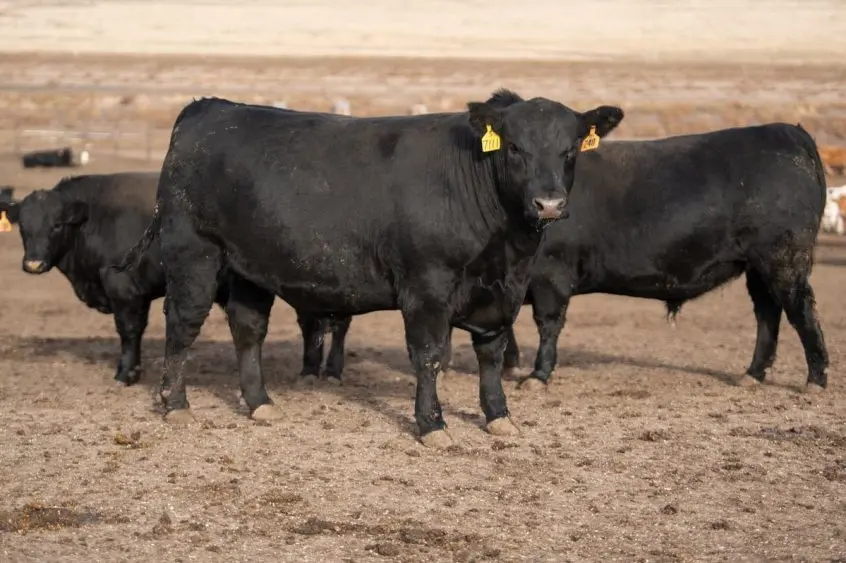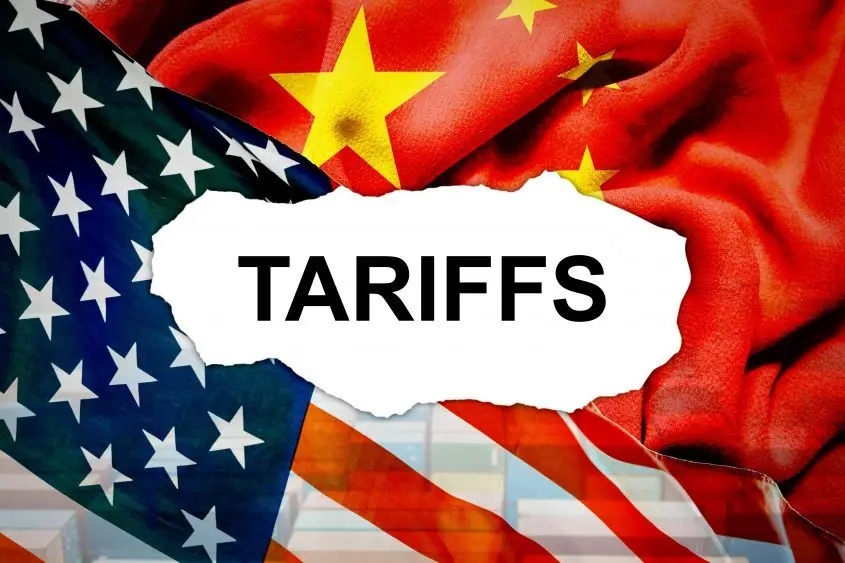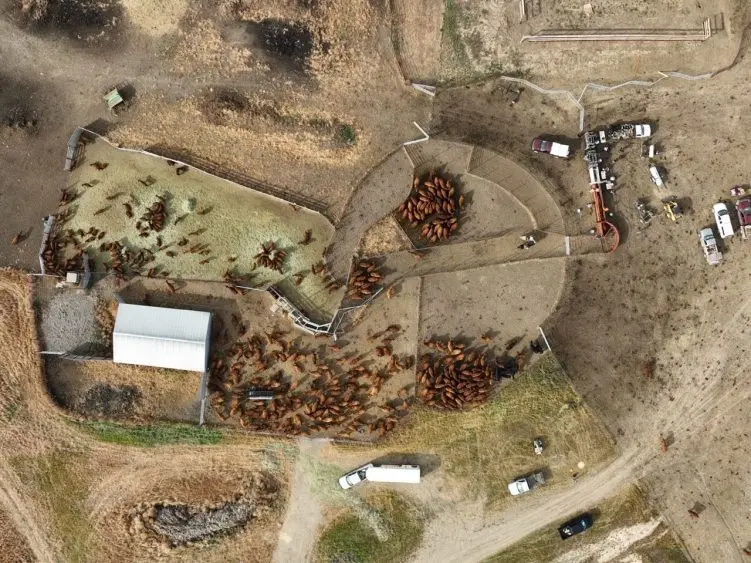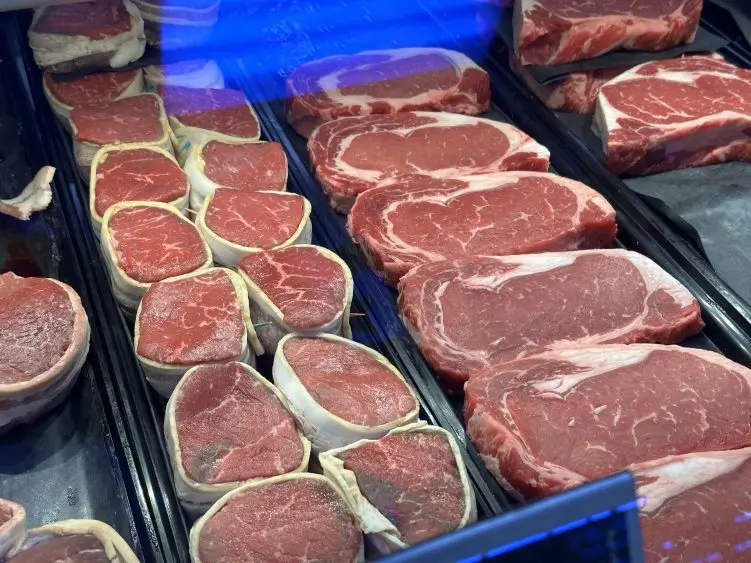
USDA announced Wednesday afternoon its new action plan “to strengthen the American beef industry, reinforcing and prioritizing the American rancher’s critical role in the national security of the United States.” The timing of the announcement coincides with growing tension over reports that the Trump Administration may be preparing to import large volumes of beef from Argentina to ease consumer prices.
According to Politico, officials familiar with the talks say the administration is “looking to buy four times its typical quota of Argentine beef in an effort to lower consumer food prices — a move that risks alienating longtime farm-state allies of President Donald Trump.”
President Trump also weighed in on Truth Social Wednesday morning with a post that sent cattle futures tumbling: “The Cattle Ranchers, who I love, don’t understand that the only reason they are doing so well, for the first time in decades, is because I put Tariffs on cattle coming into the United States, including a 50% Tariff on Brazil. If it weren’t for me, they would be doing just as they’ve done for the past 20 years — Terrible! It would be nice if they would understand that, but they also have to get their prices down, because the consumer is a very big factor in my thinking, also!”
The National Cattlemen’s Beef Association (NCBA) quickly issued a strong response. In a Wednesday news release, the group criticized the proposal to import more Argentine beef, calling it a misguided effort to lower grocery store prices that would harm U.S. cattle producers.
“The National Cattlemen’s Beef Association and its members cannot stand behind the President while he undercuts the future of family farmers and ranchers by importing Argentinian beef in an attempt to influence prices,” said NCBA CEO Colin Woodall. “It is imperative that President Trump and Secretary of Agriculture Brooke Rollins let the cattle markets work. If President Trump is truly an ally of America’s cattle producers, we call on him to abandon this effort to manipulate markets and focus instead on the promised New World Screwworm facilities in Texas; making additional investments that protect the domestic cattle herd from foreign animal diseases such as FMD; and addressing regulatory burdens, such as delisting of the gray wolf and addressing the scourge of black vultures.”
Cattle futures fell sharply Wednesday, with many feeder-cattle contracts closing limit down, echoing similar market reactions seen last Friday following the President’s earlier comments.
Mike Zuzolo, owner of Global Commodity Analytics, said the administration’s approach appears similar to its strategy for egg prices earlier this year. “This Truth Social post helps support the idea that I think we talked about last week about the idea that President Trump’s move in his beef policy to cool prices heading into 2026 is similar to what he did with the egg prices earlier this year,” Zuzolo said. “Be that as it may, to the producers out there, we really need to realize that maybe he is sincere about wanting to cool retail prices down and taking a page out of the playbook of the eggs. I believe that to be the case.”
Zuzolo added that despite the sell-off, feeder cattle prices remain strong. “The first thing you may be thinking was, well, we just lost our markets. Our markets are dead. Well, it’s interesting because I wanted to figure out what the price was now at $365 versus what the high was. The high was $381 earlier this month for lead month feeder futures. It’s only $16 off the highs as of Wednesday’s close. We’re not far off the highs. We’re still very profitable.”
The timing of this debate is significant because the U.S. beef supply and import/export balance are under pressure. According to the USDA Economic Research Service, 2025 U.S. beef production is forecast at around 26.358 billion pounds, a decline compared with recent years. Meanwhile, beef imports surged 60 % year-over-year in May 2025 (to about 550 million lb), prompting upward revisions in import forecasts for both 2025 and 2026. That said, imports as a share of total U.S. beef supply remain modest. Analysts note, for instance, that Argentine beef still accounts for only around 2 % of U.S. imports—so even doubling would have limited effect on overall retail prices. Retail beef prices have already climbed dramatically; one estimation places the average retail beef and veal price in August 2025 at about $6.32 per pound, up 11.6% year-over-year. Against this backdrop, producers warn that sudden import decisions could dampen confidence and investment in U.S. herd expansion.
Meanwhile, political criticism is mounting from multiple quarters. During an interview with Agriculture of America, Minnesota Congresswoman Angie Craig, ranking member of the House Agriculture Committee, voiced strong criticism of the administration’s trade and tariff policies, calling them devastating for family farmers across the Midwest.
Speaking with host Jesse Allen, Craig said she attended a weekend event in Minnesota focused on trade and exports, where she heard deep concern from producers about collapsing export markets, high input costs, and declining farm incomes. “It was a great event to talk about how important these export markets are to Minnesota farmers,” Craig said. “When you’ve got across-the-board tariffs on two of your largest trading partners, including the ones you have agreements with—Canada and Mexico—and then lose China as a market to Brazil and Argentina, it’s tough times for folks.”
Craig said the combination of inflation, tariffs, and restricted trade access has “literally squeezed farmers from all sides,” noting that bankruptcies in Minnesota are up more than 50 percent. She compared today’s struggles to her own family’s experience during the 1980s farm crisis, calling the current situation “deeply personal.”
She also criticized the administration’s decision to delay domestic farm aid while approving what she called a “$40 billion bailout for Argentina,” which she said effectively props up one of America’s key competitors in soybean exports. “I’m truly stunned at everything that’s hitting our family farmers—and that the administration isn’t acknowledging and moving faster here,” she said.
Craig also blasted reports that the White House is considering importing beef from Argentina to lower U.S. beef prices. “This is the stupidest thing I’ve ever heard in my entire life,” she said. “The idea that you’re going to prop up a key competitor just worsens the environment in farm country.”
She added that despite rumors of a $10-15 billion farm aid package, “the administration is targeting probably 12 to 13 billion they could send out without congressional authority. That’s a drop in the bucket. We think the economic assistance that’s going to be required is closer to $50 billion.” Craig emphasized that short-term relief won’t solve the underlying problem: “Unless you solve for the trade war, we’re going to be right back where we are a year from now. Farmers want markets, not subsidies.” She also warned that the ongoing government shutdown could soon exhaust SNAP and WIC funding and that roughly one-quarter of U.S. farmers rely on Affordable Care Act coverage. “We need to get the government open. We need to extend ACA tax credits so health care costs don’t go up,” Craig said. “I’m not opposed to strategic tariffs, but these across-the-board tariffs and picking fights with your friends and your enemies—it’s just squeezing farmers from all sides.” Craig ended on a hopeful note, saying that bipartisan talks are continuing behind the scenes on what she called a “skinny farm bill.” “My hope is that we’ll get the government back open and that we’ll get economic assistance for family farmers and working families,” she said.
On Thursday, U.S. Representative Dusty Johnson (R-S.D.) and seven of his House Republican colleagues sent a letter to President Trump urging him to give American producers an opportunity to meet increased demand before importing beef from Argentina. Johnson was joined by Representatives Julie Fedorchak (R-N.D.), Michelle Fischbach (R-MN), Troy Downing (R-MT), Gabe Evans (R-CO), Derek Schmidt (R-KS), Jeff Hurd (R-CO), and August Pfluger (R-TX).
In the letter, they emphasized that American ranchers supply the world’s highest-quality beef and should not be undercut by foreign imports produced under lower standards. They called for trade decisions made with “full transparency, sound science, and a firm commitment to the U.S. cattle industry.”
“South Dakota’s cattle producers set the standard for quality and safety in beef production,” said Johnson. “I understand the President’s efforts to strengthen trade and keep food affordable, but those efforts should not undermine the farmer and ranchers who put dinner on our tables. Any decision to import foreign beef must hold countries to the same gold-standard regulations our producers meet every day. American ranchers play by the rules, produce the best beef in the world, and they deserve a fair shot to compete.”
“We’ve all received a number of questions and calls from our constituents over the last few days, so we are asking for clarity on the administration’s long-term plans. Our farmers and ranchers stand ready to deliver on the President’s America-First agenda,” said Fedorchak. “North Dakotans take great pride in producing the safest, highest-quality beef in the world—and we should be building on that success. When it comes to beef, no one does it better than the United States.”
Their letter underscored the value of America’s ranchers, saying, “They’ve endured droughts, blizzards, and volatile markets while continuing to raise safe, high-quality beef that feeds families across America and around the world. Their work is a source of immense pride to our districts and to the broader U.S. agriculture community.” It also warned that introducing beef from countries with inconsistent safety or inspection records “could undermine the confidence that U.S. ranchers have worked decades to earn.” “America’s producers can compete with anyone in the world,” the lawmakers concluded. “If given an opportunity, they will continue to respond quickly to the market demand for more quality American beef in our grocery stores.”
What happens next will be important for producers, consumers, and markets alike, as the administration could soon decide whether to move forward with expanded beef imports from Argentina, though the timeline remains uncertain. Analysts and producers are closely watching how the USDA’s beef industry plan will translate into concrete actions, such as expansions of processing capacity, increased investments in disease protection, and potential regulatory changes. Markets are expected to remain volatile amid ongoing supply constraints, high prices, and uncertainty surrounding import and tariff policies. USDA forecasts indicate tightening domestic supplies and rising imports, conditions that could further elevate uncertainty within the cattle sector. Meanwhile, Congress and farm-state lawmakers may demand greater clarity or oversight if family farmers begin feeling negative downstream effects of these decisions. For consumers, any moderation in retail beef prices may depend less on import levels and more on long-term factors like herd rebuilding, reduced production costs, and improvements in processing efficiency.



